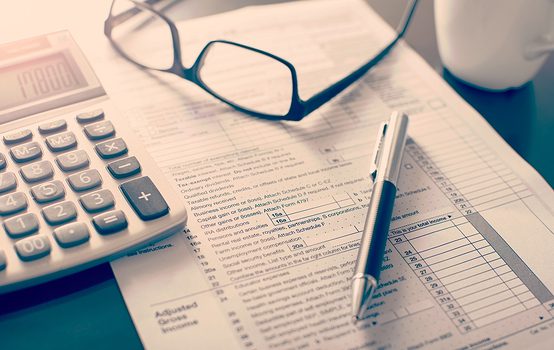Tax Reform Will Not Happen

As the presidential campaign heats up, discussion of tax reform is accelerating. That discussion is missing one key fact: our tax system is not designed to efficiently collect revenue, to maximize economic growth, or to ensure equity, but rather to get politicians reelected.
Hillary Clinton proposes to raise income taxes on the rich and modify the corporate tax code to punish companies that move jobs overseas. Donald Trump is calling for cuts in all individual income-tax rates, elimination of the special treatment of carried interest, and a slashing of the corporate rate from 35 to 15 percent. Gary Johnson has put forth a plan to replace the income tax with a consumption tax.
None of these plans will go anywhere. The current tax system is not an accident, but rather quite intentional. It serves the purposes of politicians in two ways: it keeps direct taxes on voters relatively low, and it provides a mechanism for collecting campaign contributions from business owners and executives searching for tax relief.
Businesses generally pay more in taxes than they receive back from government in services. The opposite is true for individuals. I have personally done tax and expenditure studies for over 20 local governments in four different states and found this to hold repeatedly.
Since businesses get their revenue from customers, it makes little difference from an economic point of view whether businesses are over- or under-taxed. Individuals are really paying all the taxes. Things are different, however, when seen from a political point of view.
Politicians love business taxes because they are generally invisible to customers. Shoppers think little about the effects of property taxes, license fees, and corporate income taxes on the prices they pay. In contrast, most taxes on individuals are very visible. People see sales taxes, property-tax bills, and assorted deductions from their paychecks on a regular basis.
By emphasizing business taxes, then, politicians can take credit for keeping your taxes low while getting businesses to do the tax collection for them. People vote, but businesses do not—and people, especially Americans, do not like taxes.
Another advantage of high business taxes is the ability to lower them to a more reasonable level in special cases. State and local governments can offer tax breaks in exchange for the location of a new factory or an office building full of new jobs in their community. Congress can offer loopholes and other tax breaks to specific industries—or even individual firms if they write the law carefully enough. Dangling the prospect of a tax break in front of a prospective donor does wonders for campaign contributions.
Real tax reform would destroy the whole industry politicians have built around offering special tax breaks in exchange for contributions that fund their reelection campaigns. Setting business tax rates high initially and then offering lots of exemptions, deductions, and exclusions is the basis of this campaign-finance ecosystem. A federal corporate-tax system such as Trump is proposing (lower rate, fewer deductions and loopholes) might be more pro-growth, but it would be much less effective at raising campaign contributions. Similarly, if Clinton punishes big corporations too much, why would their executives fill her campaign coffers?
So no matter how much talk of tax reform you hear in Washington, DC, or state capitols these days, ignore it. Missing from these discussions is any admission that the system we have suits the politicians just fine. Candidates see political advantage in talking about tax reform—in acknowledging that everybody who is not a beneficiary of the status quo hates it. But they have little reason to follow through.
Unfortunately for those who dream of a better tax system, the chief beneficiaries of our current tax system are precisely the politicians who write the tax laws.
Jeffrey H. Dorfman is a professor of applied economics at the University of Georgia. Follow @DorfmanJeffrey
Comments